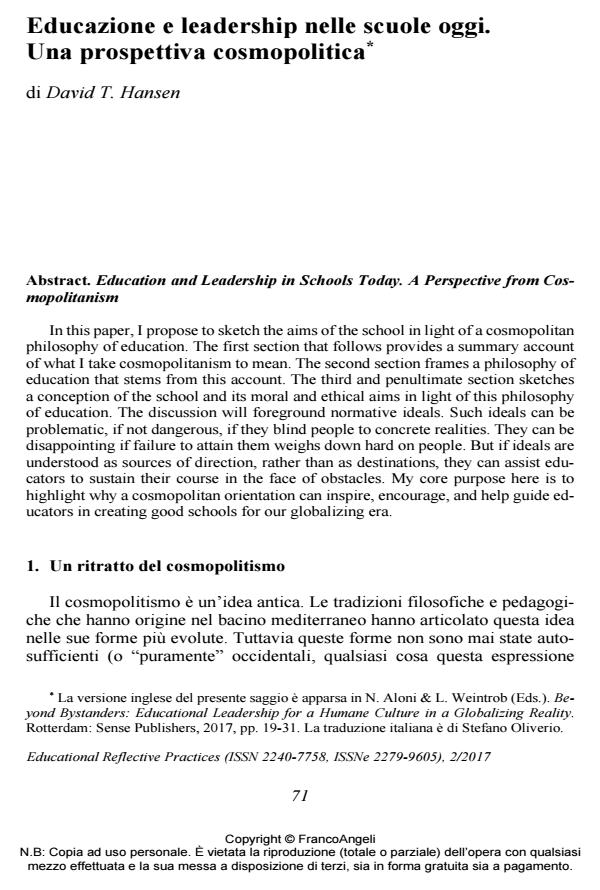Educazione e leadership nelle scuole oggi. Una prospettiva cosmopolitica
Titolo Rivista EDUCATIONAL REFLECTIVE PRACTICES
Autori/Curatori David T. Hansen
Anno di pubblicazione 2018 Fascicolo 2017/2
Lingua Italiano Numero pagine 15 P. 71-85 Dimensione file 233 KB
DOI 10.3280/ERP2017-002006
Il DOI è il codice a barre della proprietà intellettuale: per saperne di più
clicca qui
Qui sotto puoi vedere in anteprima la prima pagina di questo articolo.
Se questo articolo ti interessa, lo puoi acquistare (e scaricare in formato pdf) seguendo le facili indicazioni per acquistare il download credit. Acquista Download Credits per scaricare questo Articolo in formato PDF

FrancoAngeli è membro della Publishers International Linking Association, Inc (PILA)associazione indipendente e non profit per facilitare (attraverso i servizi tecnologici implementati da CrossRef.org) l’accesso degli studiosi ai contenuti digitali nelle pubblicazioni professionali e scientifiche
In this paper, I propose to sketch the aims of the school in light of a cosmopoli-tan philosophy of education. The first section that follows provides a summary account of what I take cosmopolitanism to mean. The second section frames a philosophy of education that stems from this account. The third and penultimate section sketches a conception of the school and its moral and ethical aims in light of this philosophy of education. The discussion will foreground normative ideals. Such ideals can be problematic, if not dangerous, if they blind people to concrete realities. They can be disappointing if failure to attain them weighs down hard on people. But if ideals are understood as sources of direction, rather than as destinations, they can assist educators to sustain their course in the face of obstacles. My core purpose here is to highlight why a cosmopolitan orientation can inspire, encourage, and help guide educators in creating good schools for our globalizing era.
David T. Hansen, Educazione e leadership nelle scuole oggi. Una prospettiva cosmopolitica in "EDUCATIONAL REFLECTIVE PRACTICES" 2/2017, pp 71-85, DOI: 10.3280/ERP2017-002006